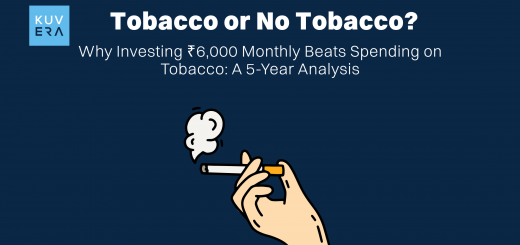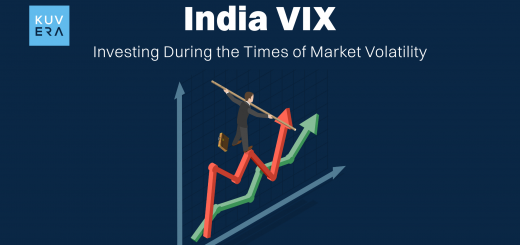Stock market crashes can be demoralising, especially for young investors who may not fully understand the complex factors driving these dramatic declines. In this blog, we’ll break down the basics of market crashes and explore historical examples of past market crashes.
Create wealth with ₹500.
What Is A Stock Market Crash?
A market crash is a sudden, dramatic decline in stock prices across a significant cross-section of a stock market, leading to a substantial loss of paper wealth. Crashes are often driven by panic selling and underlying economic factors.
Start investing in Index Funds.
On August 5, 2024, the global stock markets experienced a dip. Here’s how the S&P 500 has been performing:

The US reported weak job data, showing a significant drop in job creation and an increase in the unemployment rate to 4.3%. This data fueled panic which in turn resulted in a potential recession in the US economy. Another factor is the growing tensions between Iran and Israel with threats of war. This geopolitical instability contributed to the panic among investors as well.
Well, that escalated quickly.#Meme #Market pic.twitter.com/mGs1nS87IG
— Kuvera (@Kuvera_In) June 4, 2024
The crash in Asian markets was also severe. Japan’s Nikkei 225 plunged over 12%, marking its worst two-day decline since 1987. South Korea’s Kospi fell by 9%, and other major Asian indices also saw substantial losses.
BSE Sensex crashed 2,658.61 points (3.27%) in intraday trading to hit a low of 78,296. It closed down 2,223 points (2.74%) at 78,773.90 by the time the market closed on 5th August 2024.

NSE Nifty50 also went below the 24,000 level, hitting a low of 23,894. Here’s how it closed on the 5th August 2024:

What Causes A Stock Market Crash?
Market crashes are typically triggered by a combination of economic, political and psychological factors. These can include poor economic data, geopolitical tensions, unexpected financial events, or maybe a widespread panic among investors.
For example, the recent crash on August 5, 2024, was influenced by weak US job data, escalating tensions between Iran and Israel and a significant decline in Asian markets, particularly in Japan’s Nikkei index.
1987 Black Monday vs 2024 Global Market Crash
Black Monday, which occurred on October 19, 1987, is one of the most infamous market crashes in history. The Dow Jones Industrial Average plunged 22.6% in a single day. This crash was caused by a mix of economic concerns, computerised trading and investor panic, resulting in a global financial shock.
The crash on August 5, 2024, saw markets worldwide plummet, with India’s Sensex falling over 2,200 points and the NSE Nifty dropping below 24,000. This crash was fueled by fears of a recession in the US, geopolitical tensions between Iran and Israel, and a significant decline in Asian markets, especially Japan’s Nikkei 225, which experienced its worst two-day decline since 1987.
Single-Day Sensex Crashes
India's stock market benchmarks recorded their steepest drop in 4 years as Lok Sabha election outcomes rattled investors. The BSE Sensex tumbled 5.7%. Take a look at its biggest single-day declines since 2000, and the underlying causes.#ChartOfTheDay pic.twitter.com/WeC0VTAGcE
— Kuvera (@Kuvera_In) June 5, 2024
Wrapping Up
Understanding market crashes and their causes can help investors during such events and reduce the fear associated with them. For long-term investors, the key takeaway is the necessity of maintaining a diversified portfolio. Diversification helps mitigate risks associated with market volatility and unforeseen events.
FAQs
Why do market crashes happen?
Market crashes occur due to a number of factors, including poor economic data, geopolitical events, changes in government policies, investor panic and several other reasons. These factors create a perfect storm that leads to a rapid sell-off of stocks.
How can I protect my investments during a market crash?
- Step 1: Diversify your portfolio.
- Step 2: Avoid panic selling.
- Step 3: Focus on long-term investment goals.
These are key strategies to protect your investments during a market crash.
What was Black Monday?
Black Monday refers to 19th October 1987, when stock markets around the world crashed, with the Dow Jones Industrial Average dropping 22.6% in a single day.
How does a market crash affect the economy?
A market crash can lead to reduced consumer confidence, obstacles in local businesses, decreased spending and investment, and can sometimes trigger a recession. The overall economic impact depends on the severity and duration of the crash.
Interested in how we think about the markets?
Read more: Zen And The Art Of Investing
Watch here: Investing In Passive Funds
Start investing through a platform that brings goal planning and investing to your fingertips. Visit kuvera.in to discover Direct Plans of Mutual Funds and Fixed Deposits and start investing today.
AREVUK Advisory Services Pvt Ltd | SEBI Registration No. INA200005166
DISCLAIMER: Mutual Fund investments are subject to market risks. Read all scheme related documents carefully. Registration granted by SEBI, membership of BASL (in case of IAs) and certification from NISM in no way guarantee performance of the intermediary or provide any assurance of returns to investors. Investments in securities market are subject to market risks. Read all the related documents carefully before investing. The securities quoted are for illustration only and are not recommendatory.












